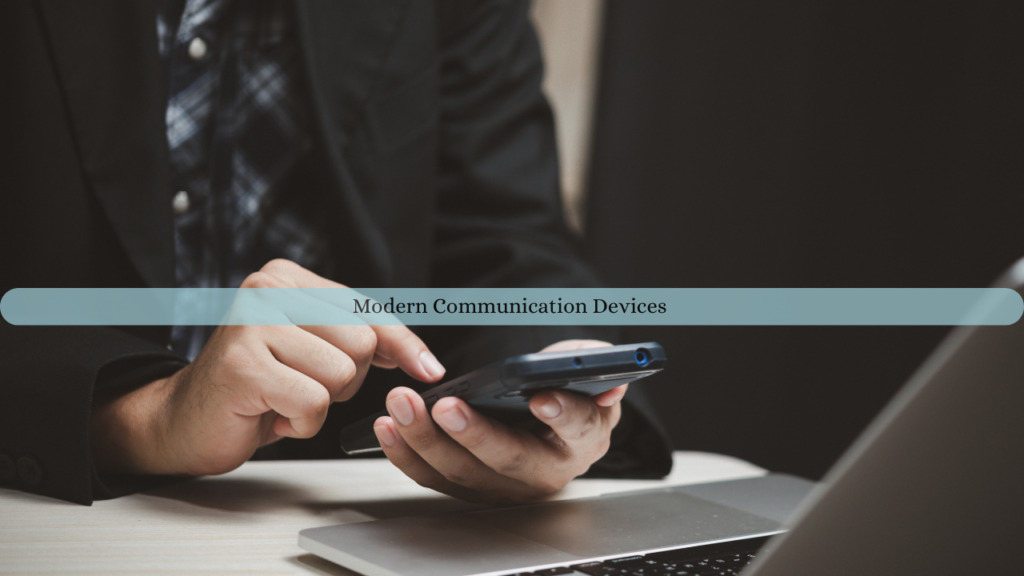Digital Dependency: How Modern Communication Devices Shape Our Lives
Standard post by Temp35 on September 27, 2024
Comments are off for this post

In an era where technology is omnipresent, the rise of communication devices has transformed how we interact, work, and live. The rapid advancement of smartphones, social media platforms, and other digital tools has made communication instantaneous, accessible, and often, overwhelming. While these innovations have revolutionized our ability to connect, they have also led to a significant dependence on digital devices that impacts our daily lives in profound ways.
The ubiquity of smartphones epitomizes this dependency. According to a 2021 survey by Pew Research Center, approximately 85% of Americans own a smartphone, and a majority of users check their devices multiple times an hour. This constant connectivity fosters a culture where individuals are perpetually engaged with their devices, often prioritizing digital interactions over face-to-face communication. As a result, personal relationships may suffer; people might find it challenging to engage meaningfully with those around them when their attention is divided by the allure of their screens.
Social media platforms further complicate this dynamic. They provide an avenue for connection but also encourage a form of social validation that can lead to anxiety and depression. Users often seek approval through likes and comments, creating a feedback loop that reinforces their digital presence. This phenomenon can lead to an unhealthy relationship with technology, where individuals feel compelled to curate their online personas, prioritizing digital engagement over authentic relationships. A study published in the journal Computers in Human Behavior found a correlation between social media use and feelings of isolation, revealing the paradox of connectivity in an age dominated by digital devices.
Moreover, digital dependency extends beyond personal relationships into the professional sphere. Remote work, enabled by communication technologies, has blurred the lines between personal and professional life. While this flexibility can enhance productivity, it also fosters a culture of constant availability. Employees may feel pressured to remain connected outside of working hours, leading to burnout and a decline in mental well-being. Research from the World Health Organization indicates that excessive use of digital devices can contribute to stress-related disorders, highlighting the need for boundaries in our increasingly interconnected lives.
The impact of digital dependency is also evident in younger generations, who are growing up in a world dominated by screens. A 2020 study by Common Sense Media found that teens spend an average of seven hours a day on screens for entertainment, not including time spent on school-related activities. This immersion in digital communication can impede the development of social skills, as face-to-face interactions are often replaced by texting or online chats. As these individuals transition into adulthood, they may struggle to engage in meaningful, in-person conversations, perpetuating the cycle of digital dependency.
Despite these challenges, it is essential to recognize that communication devices offer valuable benefits. They enable us to maintain connections across vast distances, access information instantaneously, and engage in diverse communities. The key lies in finding a balance that allows us to harness the advantages of technology without becoming overly reliant on it.
To combat digital dependency, individuals can implement strategies such as setting designated times for device-free interactions, utilizing apps that limit screen time, and being mindful of how and when they use their devices. By cultivating a healthier relationship with technology, we can enjoy the benefits of communication devices while minimizing their adverse effects on our lives.
In conclusion, as we navigate an increasingly digital world, acknowledging the complexities of our dependency on communication devices is crucial. While they have reshaped our interactions and offered unprecedented connectivity, it is essential to strive for a balanced approach that prioritizes authentic relationships and mental well-being. In doing so, we can ensure that technology serves as a tool for enrichment rather than a source of disconnection.








